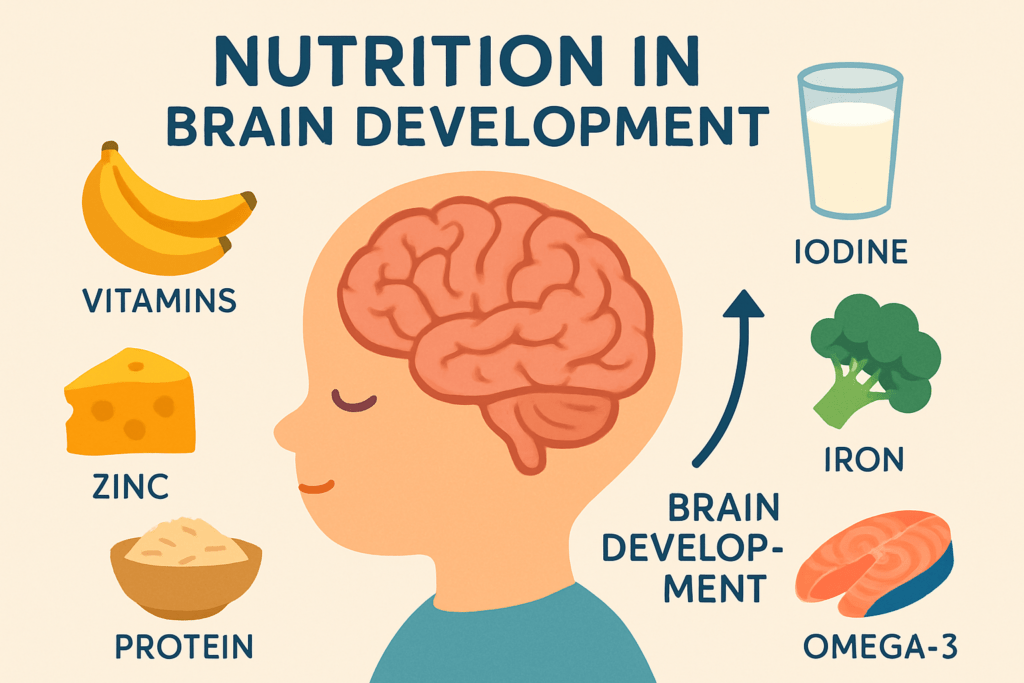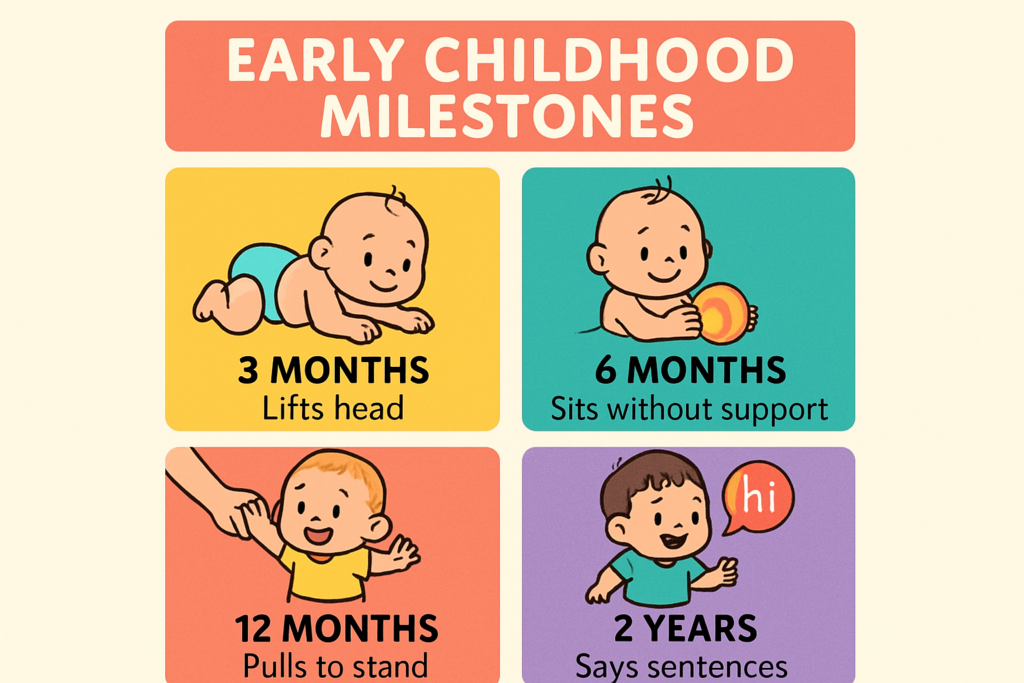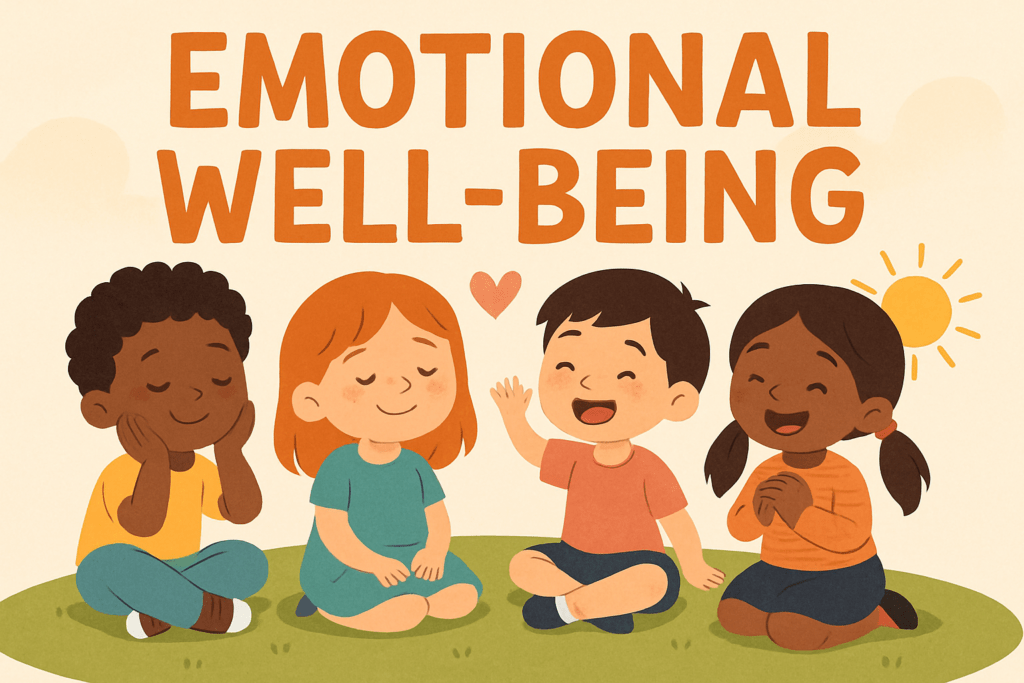Nutrition in Brain Development: Why Every Bite Counts
- The early years shape the brain for life—nutrition is one of the most powerful builders.
- Parents and caregivers often overlook how what kids eat affects focus, memory, and mood.
- This article explores how nutrition fuels healthy brain growth, using clear explanations and real-life tips.
Nutrition in Brain Development: Why Every Bite Counts
Wired before we ever speak our first word, the human brain is like a construction site on a deadline. And the number one building material? Nutrition. Those early years—pregnancy through age five—shape how we focus, learn, adapt, and even handle feelings for the rest of our lives. Miss out on key nutrients or rely too much on sugary snacks, and the scaffolding for skills like memory or self-control might not set as strong as it should.
Most people think of nutrition as something that just keeps the body running. But when it comes to kids, every bite also supplies the raw materials for mood, attention, and sharp thinking. Kids who eat balanced, nutrient-dense meals are more likely to stay alert in class, remember what they learn, and bounce back from setbacks. That breakfast struggle isn’t just about getting calories in—it’s about laying down neural pathways that shape the whole day (and the years ahead).
So, whether you’re a parent, teacher, or anyone involved in shaping young lives, it’s time to see food in a new light. The science is clear, and the stakes are high: what goes into a child’s mouth now can change how their mind works for life.
The Science: How Nutrients Power Growing Brains
There’s no fancy magic here—the brain is like a construction site, and nutrients are the raw materials the builders need. During childhood, the brain grows at warp speed. Billions of new connections form. Synapses fire. But to pull all that off, the brain needs three main things: protein, healthy fat, and a steady supply of vitamins and minerals.
Think of protein as the bricks—each brain cell is built from it. Fats act like scaffolding, supporting the membranes that surround these cells and helping signals travel fast between them. Then you’ve got your spark plugs: vitamins and minerals, especially iron, zinc, and the B family of vitamins. These keep electrical messages zipping across the brain’s network.
Skimp on these essentials, and it’s like building a house with missing beams or faulty wiring. That’s why deficiencies can hit kids hard—not just in growth, but in how they think, remember things, and handle emotions. Put simply: what’s on the plate today shapes how sharp, focused, and balanced the mind feels tomorrow.
Science backs this up. Studies link solid nutrition with better attention, quicker learning, and even more stable moods in kids. It’s a direct feed—food literally fuels the mind’s wiring. So, if you want a child’s brain to develop at its best, nutrition isn’t an optional extra. It’s the main tool in the box.
What Happens After Winning Millions?
Winning a life-changing lottery jackpot is every player’s dream, but few are prepared for what follows. The sudden influx of wealth can bring excitement but also a slew of challenges. Winners often face being overwhelmed by financial decisions, from handling taxes to devising investments that safeguard their future. The journey of lottery winners can diverge dramatically depending on how they manage—or mismanage—their newfound wealth.
The Financial Reality of Winning
Navigating the complexities of newfound riches involves several strategic decisions:
-
Managing Taxes and Legal Considerations
A substantial portion of the winnings is typically allocated to taxes, and an oversight here could lead to legal issues. -
Strategic Investing vs. Impulse Spending
Some winners wisely bring in financial advisors to ensure their wealth is well-managed, while others fall into patterns of reckless expenditure. -
Future Budgeting and Planning
Without solid financial planning, even the largest jackpots can evaporate alarmingly fast.
Lifestyle Changes
A sudden change in financial status can instantly transform one’s lifestyle:
-
Acquisition of Luxury Items
What were once mere fantasies—mansions, high-end cars, and lavish vacations—now become easily attainable. -
Social and Familial Pressures
With wealth comes a surge in attention from long-lost friends and distant relatives hoping for a share of the prize. -
Handling Privacy Concerns
For some winners, the challenge includes managing increased public interest and media scrutiny, often preferring a quiet lifestyle to avoid undue pressure.
Contributing to Society
Beyond personal gain, many winners seek to leverage their wealth for societal good:
-
Charitable Contributions and Community Focus
A significant number opt to give back through donations and community projects. -
Educational and Entrepreneurial Investments
Funding scholarships and supporting local businesses can provide lasting positive outcomes for communities.
In essence, some lottery winners shift roles from beneficiaries to benefactors, using their wealth to create enduring legacies. Yet, success is not guaranteed for everyone, as some who do not manage their windfall wisely face financial downfall within a few short years.
What Happens After Winning Millions?
Winning a life-changing lottery jackpot is every player’s dream, but few are prepared for what comes next. The sudden influx of wealth can bring excitement, but also a wave of challenges that accompany newfound riches.
Financial Reality Check
After winning, many winners face overwhelming financial decisions:
- Managing Taxes
- A significant portion of winnings is often lost to taxes.
- Mismanagement can lead to legal problems.
- Investment Choices
- Hiring financial advisors for long-term investment strategies.
- Risks include impulsive spending without financial planning.
- Budget Planning
- Ensuring that the wealth lasts beyond the initial thrill.
- Risk of losing it all without careful financial management.
Lifestyle Transformations
The change in lifestyle is immediate and dramatic:
- Luxury Purchases
- Acquiring mansions, exotic cars, and taking extravagant vacations.
- Social Dynamics
- Friends and relatives may seek a share of the fortune, creating tensions.
- Managing increased attention and expectations can be challenging.
- Privacy Concerns
- Some winners prefer to keep a low profile to maintain privacy.
Giving Back and Making an Impact
Many winners use their fortunes to make significant contributions:
- Charitable Contributions
- Donating to trusts or nonprofits to support community initiatives.
- Investing in Communities
- Funding scholarships and revitalizing small towns.
- Building a Legacy
- Using winnings to create positive change and ensure a lasting impact.
For some, wealth provides an opportunity to shift from players to philanthropists, influencing their own lives and the wider world. Yet, the way winners manage their wealth influences not only their future but also the legacy they leave. Stories of financial downfall are as prevalent as those of triumph and philanthropy.
Habits for Lasting Impact
Let’s be real—no kid eats like a nutrition textbook, and that’s fine. The key to lasting brain benefits isn’t locking down picture-perfect meals, but building patterns that add up over time. It’s the difference between a crash diet and a lifestyle: snack on fruit one day, fish tacos the next, and yes, birthday cake sometimes too.
One habit that quietly pays off? Hydration. Water keeps everything—from focus to mood—in better working order, even if kids swear they’re “not thirsty.” As for meals, go for balance more than strict rules. Each plate doesn’t have to be Instagram-worthy. Try for a mix: some protein, whole grains, veggies or fruit, and healthy fats here and there. The routine of mostly wholesome choices matters more than chasing a perfect menu.
Processed sweets and fast food aren’t banned, but keeping them “sometimes” treats protects healthy brain growth. Focus more on what you add (like nuts into snacks, or spinach into pasta sauce) than what you cut out. And get kids in the kitchen—maybe they rinse the berries, stir the eggs, or pick tonight’s veggie. When kids help, they’re more likely to taste, and those good habits start sticking without a struggle.
In short: consistency over perfection, small changes over strict rules. That’s how real eating habits form—habits that quietly power brains for years to come.
What the Latest Research Tells Us
Science hasn’t stopped moving, and neither has our understanding of how food influences growing brains. Recent studies confirm what grandparents suspected but in sharper detail: Miss out on nutrients like iron and omega-3 fats, and kids may struggle with learning new words, paying attention, or even remembering yesterday’s lessons. One headline from the past year? Kids with even mild iron deficiency score lower on memory tests and can take longer to pick up new skills. There’s also growing buzz around vitamin D—some evidence links low levels to trouble with mood and focus, not just bone health.
It’s not all gloom, though. Research keeps finding that improvement is possible. When kids with nutritional gaps start getting enough of what their brains crave, their ability to focus and solve problems often picks up—sometimes fast. In short: The science is catching up with what parents see every day. The right nutrition makes a real-world difference, right down to how quickly lessons stick and how smoothly a day goes. For a deeper dive into what child wellness experts are tracking lately, head over to this parenting guide.
Beyond Food: Setting Up for Lifelong Brain Health
Let’s be real—nutrition is only part of the story. A well-fed brain still needs good sleep, active play, and a safe, caring vibe at home. Think of brain health like a multi-tool: food is one blade, but rest, routines, and family connection sharpen the others.
Kids’ brains wire best when they get regular sleep (goodbye, cranky mornings), time to run or climb, and moments to just talk or laugh with you. Simple routines make life predictable, which calms stress—key for healthy brain growth. Don’t overlook just hanging out together or the power of a consistent bedtime; these basics, mixed with decent meals, give your child’s brain the full boost it deserves.
Bottom line? Great nutrition works even better alongside habits that help kids feel steady, rested, and understood. The more pillars you build, the stronger the foundation—for learning, thinking, and handling life as it comes.
What Happens After Winning Millions?
Winning a life-changing lottery jackpot is every player’s dream, but few are prepared for what comes next. The sudden influx of wealth can bring excitement, but also a wave of challenges.
Financial Challenges
Many winners find themselves overwhelmed by financial decisions:
-
Taxes and Legal Obligations
- Large portions of the winnings often go to taxes, and without proper planning, legal complexities can arise.
-
Spending vs. Saving
- Some winners quickly hire financial advisors to secure their future, while others fall into reckless spending habits.
-
Investment Decisions
- Investing wisely is crucial, but many winners lack the expertise to make informed choices.
Without proper planning, the dream of endless riches can quickly turn into a financial nightmare.
Lifestyle Changes
For many winners, lifestyle changes happen almost immediately:
-
Luxury Purchases
- Mansions, exotic cars, and extravagant vacations become a reality.
-
Social Dynamics
- Friends and distant relatives often emerge, creating tension and difficult choices regarding financial aid.
-
Privacy Concerns
- Some winners opt for a low-profile life to avoid the pressure and attention that come with sudden wealth.
Whether they embrace luxury or opt for discretion, adjusting to their new reality is never as simple as it seems.
Making a Difference
Beyond personal wealth, some winners use their fortunes to make a positive impact:
-
Charitable Donations
- Many winners prioritize donations to causes they care about.
-
Community Projects
- Funding scholarships, launching nonprofits, or revitalizing towns are common endeavors.
-
Business Investments
- Some winners invest in businesses, contributing to job creation and economic growth.
The way winners handle their newfound riches determines not just their own future, but also the legacy they leave behind. Stories of winners making significant altruistic contributions are just as prevalent as tales of financial downfall.
Takeaway: Fuel for a Brighter Mind
You don’t need a nutrition degree or a perfect kitchen routine—just a willingness to make small, steady changes. Each meal is a chance to build your child’s brain. Over time, swapping in a few nutrient-rich ingredients and keeping snacks balanced adds up. When food fuels the mind, the results show up: sharper focus, steadier moods, and more eager learning. Bite by bite, you’re giving your child the tools to think big and thrive for life.


 Health & Nutrition Editor
Health & Nutrition Editor
